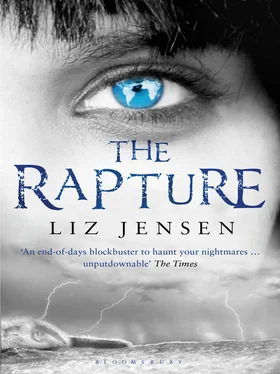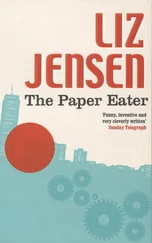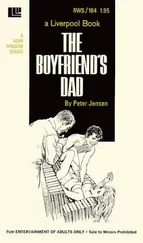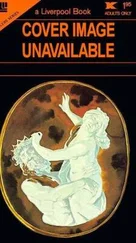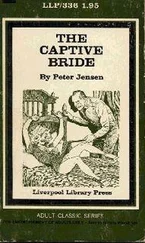Ten minutes later, preparing to leave, I notice that the answer-phone light is still winking. I hesitate. A vivid imagination can be as much a curse as it is a blessing. Today it is all curse. My brain has spent the night conjuring a thousand graphic images and I know that if I hear the physicist’s voice again now, twenty lengths of the pool will not be enough for me to process the way his tone has changed to a mixture of apprehension, guilt and excitement brought on by the thrill of another woman’s internal muscles flexing around his penis.
I press play.
‘I didn’t finish what I needed to tell you the other night,’ Joy McConey blurts. I could kiss her. ‘My husband thinks I’m mad. But I’m not. I need to see you. I have to warn you what’ll happen.’ She leaves her mobile number. ‘Ring me when you get this. There’s something you have to know about Bethany. It’ll change your mind about her.’ I recall Joy McConey’s paleness as she turned to face us in the doorway of the restaurant. Like those round white paper plates you use for picnics. Blank and honest. She’s not just predicting things. She’s making them happen.
If humans disappeared from the face of Hadport tomorrow, the botanical species which would most quickly assert itself would be the Australian eucalyptus, a tree which has already made an impressive bid for dominance in the local park where I have suggested to Joy that we meet. Breezes shuffle through their waving silver-green canopies, littering the paths beneath with narrow tongues of leaves. If I push hard, I can get there in nine minutes. But today it’s seven.
I cross the footbridge of a sluggish stream flanked with burst-open bulrushes, their cottony innards tugged at by the wind. Incongruously, an adult figure is perched on the top of a pyramid-shaped climbing frame in the enclosed children’s play area. She sits like a lonely beacon, her pale red hair shining. As I approach and fumble with the gate, she signals hello, then begins to negotiate her way down the wire ropes with a laboriousness that makes me wonder why she climbed up there in the first place. The play area’s surface is rubberised: noting its pleasantly soft squish under my wheels I add the sensation to my secret list of life’s tiny compensations for all the shit.
‘I take the kids here a lot,’ Joy says, descending the last three metres. She squats opposite me on one of the lower metal rungs but makes no attempt to shake hands, which is fine by me because for psychological reasons, I want to keep my gloves on. Before I ask she says, ‘I have three. Two girls and a boy.’ She is dressed in jeans and a khaki T-shirt. On her feet, hiking boots. As though she’s planning a trip into the jungle, like a modern-day Tintin. ‘I need to keep fit,’ she says, brushing something invisible off her knees. ‘Take care of myself. For the kids’ sake. Ronan’s only seven. Lots of vitamins, good food, low stress.’ Her hair swings about her shoulders, glinting with an ethereal, otherworldly shine that belies the combat gear. Her round face is pretty in an understated way, but ghost-pale. Apart from a couple of mothers with toddlers over by the sandpit, and the odd dog-walker in the distance, we are the only people here. ‘I can’t stay long. I had to sneak out. It’s not Nick’s fault. He thinks he’s doing the right thing. Protecting me from myself, etcetera. He doesn’t realise.’ The words are tumbling out. She could be a teenager exchanging confidences. ‘My husband’s one of those people who have to see things with their own eyes before they’ll believe it. And then when they do, they go straight into denial.’
The curse of the therapist: reflexively analysing the behaviour of others.
‘So tell me what’s on your mind, Joy.’ How I hate the conventions of shrink-speak. But how unavoidable they are. I can imagine Bethany snorting in contempt.
‘When I worked at Oxsmith she wanted something from me that I wasn’t prepared to give. I’ve paid the price and I’ll keep paying it for the rest of my life. I’ve accepted that.’ I suggested the park, but the playground was her choice. An interesting one: regression as safety. Joy is clearly in another place — a place so far away from her sane starting point that one must marvel at and respect the journey made. ‘But I don’t want you to be in that situation. That’s why I’ve been following you, and why I rang you. I don’t want anyone to go through what I have. Especially not you. You look like you’ve been through enough.’ With a sharp twist of irritation I think: it’s not for her to make those judgments. ‘Bethany’s dangerous. Her father knew all about it. I should have realised, it was all there in the notes. Staring at me in black and white. But I had to learn it the hard way, didn’t I.’
I ask, ‘So when Leonard Krall suggests that Bethany’s possessed by the Devil, you agree?’
‘Some kind of force. I don’t know what to call it. I was like you once. Not so long ago, I didn’t believe in evil. But I do now.’ Her eyes grow rounder. She seems out of breath, as though her words are exacting a heavy physical price.
‘What did Bethany want so badly?’
‘She wanted me to help her to escape. I wouldn’t, of course. Even though I believed in her. She lost faith in me. And I got scared, and I left.’
‘You left with nine stars. She liked you. You got along. So what made you scared?’
‘When I refused to get her out, she said something terrible would happen to me. It wasn’t a prediction. It was a threat.’
‘What did she say would happen?’
With a single swift movement she raises her hand to her head and, as though removing a hat, lifts off her hair. I stare at the stark white dome of her baldness. Flesh as architecture. I am too shocked to speak. Nor can I think of a single word to say.
She clasps the pale red wig in her hand, its locks trailing like the delicate tendrils of a jellyfish. Her crowning glory. ‘Cancer.’
She tosses the hair to the ground, as if it is of no relevance to her. It lies between us. A piece of evidence, a statement of fact. With extreme reluctance, I pick it up. It’s heavier than it looks, and hot inside. I offer it back but she rejects it distractedly. ‘The doctors have done what they can. But it’s terminal.’
From the sandpit, a child has materialised. He is about three. He stares at the egg-bald woman on the climbing frame, at my wheelchair, and then at the mass of red hair curled in my lap, and angles his mouth to form a terrible wail.
For which I do not, for one microsecond, blame him.
I make it back to the corner of my street in six minutes, shaken to the bone.
I might be forgiven for believing that right now things can’t get worse. But then they do. Because in the driveway, chatting to my landlady, dressed in the same crumpled linen suit he wore last night for his blonde visitor, stands the very last person I want to see. I approach warily, greet my landlady and salute the physicist with a curt nod.
He asks, ‘Where’ve you been?’
‘I was at the park. Not that it’s your business.’
Mrs Zarnac’s smile falters but her eyes blaze with avid life. Registering tension, and perhaps an upcoming clash whose details she can later recount to a gentleman friend, it’s with extreme reluctance that, prompted by my pointed goodbye, she withdraws into the pickle-scented recesses of her home. The physicist and I stay where we are, in psychic checkmate. I have no intention of inviting him in. The next move is his.
When it comes, it surprises me. He says, ‘I need to see Bethany.’
‘You can’t. She’s in hospital with burns.’ Telling him this gives me a perverse satisfaction, as though it is an element of some elaborate punishment that will be meted out to him across the course of his entire life. ‘She electrocuted herself yesterday. As soon as she’s well enough to be transferred, she’ll go to another hospital. With a different ethos. Where they’ll blast her with every drug known to man. Not the kind of place anyone tends to emerge from.’
Читать дальше
